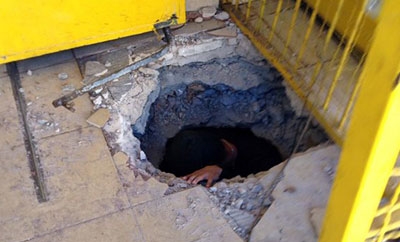Police in Paraguay say they believe high-ranking members of Brazil’s PCC criminal organization have fled Brazilian justice and relocated to Paraguay to plan further crimes, an indication of the extent to which the group sees the country as a safe haven and base of operations.
In an interview with Cardinal AM radio station, Abel Cañete, the head of the Economic Crimes Unit of Paraguay’s national police, said 15-20 “important leaders” of Brazil’s First Capital Command (PCC) had been “rescued” by the group from Brazilian prisons and had fled to Paraguay to commit “violent acts.” Cañete added that these PCC members were going to target banks and other financial institutions in Paraguay, and advised these bodies to be on the alert.
According to Cañete, investigations by Paraguayan authorities have also linked the fugitives to a 350-meter tunnel police recently found in Ciudad del Este. The tunnel was reportedly dug from a luxury home owned by a Brazilian national to the headquarters of security company Prosegur, with the objective of stealing around $100 million.
InSight Crime Analysis
The PCC has become Brazil’s largest criminal syndicate, and there have been signs that it is expanding operations abroad, with members caught in neighboring Bolivia and Paraguay — the latter of which is South America’s biggest marijuana producer and a key transit point for cocaine.
In 2011, Brazilian police identified Paraguay as an increasingly popular outpost for the PCC and other Brazilian gangs looking to take advantage of the country’s under-equipped police force, and to eliminate middlemen from their drug trafficking.
SEE ALSO:PCC Profile
Recent events indicate that the group may be moving into criminal activities in Paraguay besides drug trafficking. In addition to the tunnel discovered in Ciudad del Este, six suspected PCC members were arrested in relation to a series of ATM robberies using explosives in May this year.
However, it is somewhat odd that “leaders” of the group would be dedicated to these lower-level criminal activities, and Cañete’s statement should be viewed with caution — especially as he has given few details about the fugitives’ origins, identity, current location or criminal history.

